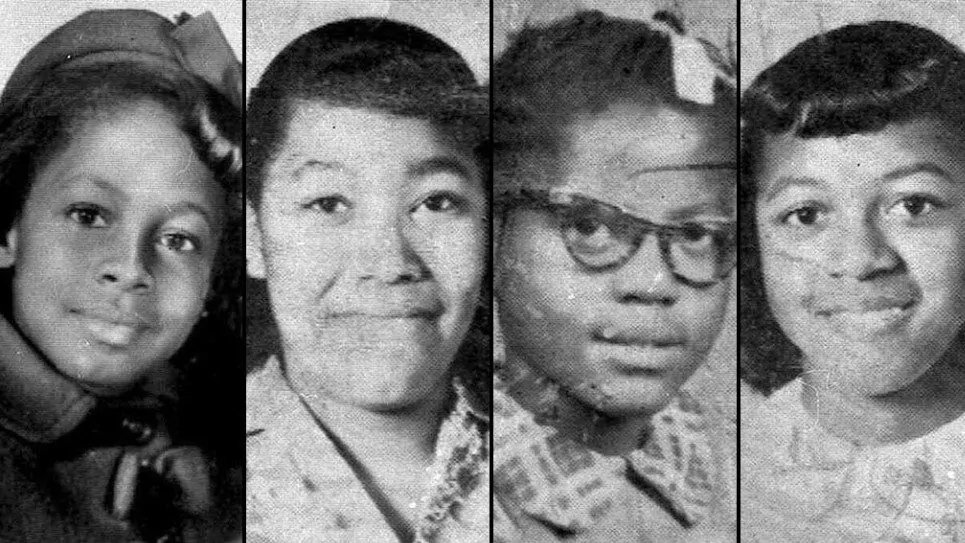Remembering the 62nd Anniversary of the 16th Street Baptist Church Bombing
Alabama leaders gathered for reflection and remembrance on the 62nd anniversary of the bombing at the 16th Street Baptist Church. Founded in 1873, it was the first black church organized in Birmingham, serving as a crucial meeting point for civil rights activists.
The church became the target of a racially motivated bombing on September 15, 1963, orchestrated by members of the Ku Klux Klan. This tragic act resulted in the deaths of four young girls: 11-year-old Carol Denise McNair and 14-year-olds Addie Mae Collins, Cynthia Wesley, and Carol Robertson, all of whom were at the church preparing for a service. Many others were injured in the explosion.
“On this day 62 years ago, hatred shattered the walls of the 16th Street Baptist Church in Birmingham,” a post from the church’s Facebook page remarked. “The bomb planted by white supremacists claimed four innocent lives—children, really. They were just getting ready for Sunday worship, full of dreams and hopes, and then… everything changed in an instant.” The statement also highlighted Sarah Collins Rudolph, Addie Mae’s sister, who survived the attack despite being both physically and emotionally scarred but embodies resilience.
The somber reflections continued: “Today, we honor them all. Let us look back, reflect, and teach. Remembering their sacrifice is vital.”
Later that same day, two other black boys—16-year-old Johnny Robinson Jr. and 13-year-old Virgil Ware—were also killed in related violence, further showcasing the chaos of that time.
A commemorative service took place at the church on Monday morning, featuring the Carlton Reese Memorial Unity Choir, comprised of members from the original Alabama Christian Movement. Former Alabama Attorney General Bill Baxley spoke at the event, recalling his role in reopening the bombing case in 1971. This eventually led to the conviction of Robert Edward Chambliss for first-degree murder, resulting in a life sentence.
In subsequent years, two other conspirators, Bobby Cherry and Edwin Blanton Jr., were indicted and similarly sentenced to life in prison. The fourth conspirator, Herman Cash, died in 1994 without facing charges.
Reverend Arthur Price Jr. emphasized the ongoing struggle against modern discrimination. “This bombing was a reflection of violence, hatred, and racism, which unfortunately continues today. We need to remember so we can fuel our fight against such forces,” he stated.
U.S. Representative Terri Sewell also commemorated the day, urging remembrance of the four lost lives and reflecting on their impact on the civil rights movement. “Today is hard. We must remember the names: Addie Mae Collins, Carol Denise McNair, Cynthia Wesley, and Carol Robertson,” she said, recognizing the void left by their deaths and the freedoms that have since emerged due to the struggle of many.
Sewell noted that her first piece of legislation awarded posthumous gold medals to each girl, a law that was signed by former President Barack Obama in 2013, ahead of the bombing’s 50th anniversary. “What an honor it was to see that bill become law,” Sewell remarked.
Senator Katie Britt and Representative Shomari also shared their memories and the significance of the bombing’s ongoing legacy. “This tragedy is a powerful reminder of the chaos faced during the civil rights movement,” Britt commented, suggesting that gratitude for lives lost should resonate each day.
Birmingham Mayor Randall Woodfin reiterated the importance of remembering the past to combat present racism. “Sixty-two years ago, white supremacists took four beautiful lives, and today we still oppose the racism that exists in our country,” he stated.
The Birmingham chapter of Black Lives Matter held a ceremony to honor the girls, calling on community members to unite in memory and to continue fighting for justice. Eric Hall, co-founder of Black Lives Matter Birmingham, noted the bombing as a “heinous act of racial violence,” urging everyone to ensure the legacy of the young girls continues.
The statement concluded by recognizing the bombing not just as a historical event but as an ongoing catalyst for the civil rights movement. “Let’s honor the past and take action toward a more equitable future,” it urged.







